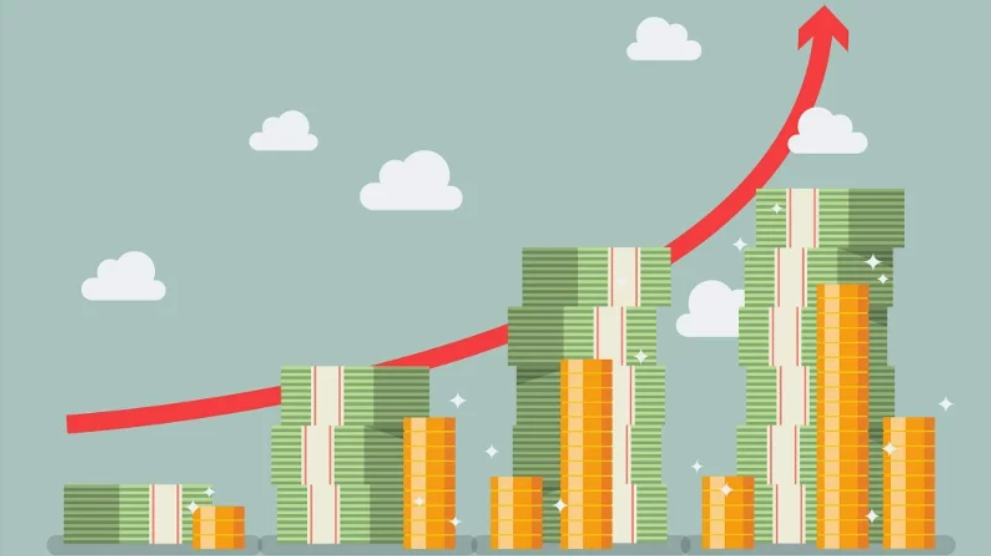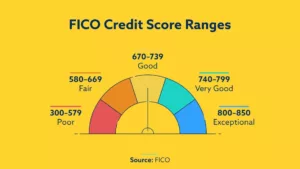The importance of a bank account cannot be dismissed.
Most people conduct financial transactions on a daily basis. Whether it’s buying groceries, grabbing a quick lunch, paying a cell phone bill or purchasing gas; the importance of a bank account is immeasurable.
People without a bank account typically conduct financial transactions with alternative financial services according to a 2021 FDIC National Survey of Unbanked and Underbanked Households.
Alternative financial services include nonbank money orders, check cashing stores, prepaid debit cards, international remittances, payday loans, refund anticipation loans, rent-to-own services, pawnshop loans, or auto title loans.
An estimated 4.5 percent of U.S. households were unbanked in 2021, meaning that no one in the household had a checking or savings account at a bank or credit union.
Imagine what it would mean if the costs to using nonbank services could be avoided. That’s the importance of a bank account.
9 Facts About the Importance of a Bank Account
1. Generate wealth over a lifetime.
According to a BankOn study, unbanked people spend an average of $40,000 over a lifetime on alternative financial service fees. If an unbanked person had a free checking account, saved the extra money in a high-interest savings account along with investing into a low-cost exchange-traded fund with a discount broker, they could generate as much as $360,000 in wealth over a 40-year period.
2. Save money by not using prepaid debit cards.
Prepaid cards can be a solution to people without a traditional bank account, however, they can be an expensive solution. Prepaid debit cards often charge a monthly fee of $10 a month, a one-time activation fee of $5, plus there may be additional fees, for instance:
- Withdrawing cash
- Making purchases
- Reloading your card
- Checking the balance on your card
- Transferring money between cards
- Not using your card for a certain amount of time
- Making foreign transactions
- Using your card every month
3. Money in a bank account is insured.
Consumer bank accounts at federally insured institutions are subject to protection under the FDIC’s standard deposit insurance. The FDIC covers up to $250,000 per depositor. Consumers with a bank account have peace of mind knowing their deposits are safe.
4. Many banks offer monthly free accounts.
Finding a free bank account is relatively easy in today’s banking industry – there are even free bank accounts for bad credit. Online banks typically don’t have big networks of brick-and-mortar branches, and their costs tend to be lower than large national banks. Many online banks don’t charge a monthly maintenance fee.
Plus, many unbanked people purchase money orders for basic needs like rent, car payment, cell phone or cable bill. Money orders come with a fee too. By opening an account with a bank you can avoid these costs and even set up direct deposit through your employer to avoid the physical process all together.
5. Bank accounts are convenient.
There are many benefits to a bank account but convenience is a major plus. If you’re conducting financial transactions without a bank account you may have experienced the hassle of a check cashing store or loading money onto a prepaid card.
Banks offer:
- Safe place to store money. A bank account provides a secure place to store your money, as opposed to keeping cash in your home or carrying it with you. This reduces the risk of theft or loss.
- Convenient access to funds. With a bank account, you can access your money whenever you need it by using a debit card, writing a check, or making an electronic transfer.
6. Bank debit cards are safer than prepaid debit cards.
Using a debit card gives you an automatic receipt for all transactions, making it easy to track where and when you spend money or pay a bill. But debit cards issued through a bank account generally have more protections than prepaid debit cards.
Unlike a bank, which holds Federal Deposit Insurance Corporation (FDIC) insurance that protects your deposits up to $250,000, money on a prepaid card may not have the same safety net.
Not all prepaid cards are FDIC-insured. Whether a prepaid card is FDIC-insured depends on the type of card and the financial institution that issued it.
Prepaid cards issued by banks or credit unions are insured up to $250,000 per depositor either by the Federal Deposit Insurance Corporation (FDIC) if it’s bank-issued or the National Credit Union Share Insurance Fund (NCUSIF) if it’s credit union-issued.
However, prepaid cards issued by non-bank companies may not be FDIC-insured. In these cases, the funds on the prepaid card may not be protected in the event of a company failure.
7. Money management and budgeting tools.
Withdrawals and purchases are automatically tracked on bank accounts, and you can receive a report of your spending accounts via a monthly statement. This is an excellent way to see exactly where your money goes each month, and from there you can fine-tune your personal budgeting habits to practice saving money on a consistent basis.
8. Build credit and a banking relationship.
As your finances grow and perhaps even your family, you may want to make big purchases such as a house or car. Banks offer various credit products, such as credit cards and personal loans, which can help you build credit over time.
You may have a small business that could benefit from a business line of credit or loan. Most banks offer a variety of financial products that can benefit your goals and endeavors. When you build a relationship with your bank you establish trust.
9. Meet savings and investment goals with a bank account.
A bank account with a high interest rate is one type of account everyone should have. A savings account can be a convenient place to stash and grow your money but what’s most important is compounding interest.
Compounding interest refers to the process of earning interest not only on the initial principal amount, but also on any accumulated interest. In other words, the interest earned is added to the principal, and the interest is calculated based on the new, higher amount, for example:
- If you have a savings account with a balance of $1,000 and an interest rate of 5%, you will earn $50 in interest after one year.
- If you leave that interest in the account, it will then earn interest in the second year based on the new balance of $1,050, resulting in a slightly higher interest payment.
- Over time, this compounding effect can significantly increase the value of the investment or the amount of interest owed on a loan.

High-yield savings accounts along with certificate of deposit and money market accounts are just a few compounding interest accounts offered only at a banking institution. Prepaid debit cards do nothing to help you grow your money. Some banks also offer access to more sophisticated investment vehicles such as stocks and bonds, mutual funds, retirement accounts, annuities, and more.
How Many Bank Accounts Should I Have
If you’re asking: “How many bank accounts should I have?” The number of bank accounts you should have depends on your personal financial situation and needs. Here are some factors to consider when choosing what type of bank accounts to open:
Financial goals. If you have specific financial goals, such as saving for a down payment on a house, it may be helpful to have a separate account dedicated to that goal.
Budgeting. Some people find it helpful to have separate accounts for different budget categories, such as bills, groceries, and entertainment.
Convenience. If you have multiple sources of income or need to manage your finances across different banks, it may be helpful to have multiple accounts for convenience.
Fees. Some banks charge fees for certain types of accounts or transactions, so it may be beneficial to have multiple accounts to avoid these fees.
Risk management. Having multiple accounts can also help with risk management, such as spreading your funds across different banks in case one bank experiences financial difficulties.
Overall, it’s generally recommended to have at least one checking account for day-to-day expenses and a savings account for emergency funds and long-term savings. Beyond that, the number of accounts you should have is a personal decision based on your financial goals and needs.
Banks vs. Credit Unions: What’s the Difference
Banks and credit unions are both financial institutions that offer similar services, such as checking and savings accounts, loans, and credit cards. However, there are some important differences between banks and credit unions, for example:
- Ownership. Banks are for-profit institutions owned by shareholders, while credit unions are not-for-profit institutions owned by their members.
- Membership. Banks are open to anyone who meets their requirements, while credit unions are typically only open to members who share a common bond, such as living in the same community or working for the same company.
- Fees and interest rates. Credit unions generally have lower fees and better interest rates on loans and deposits than banks.
- Services. Banks tend to offer a wider range of services, such as investment services, whereas credit unions typically focus on basic banking services.
- Regulation. Banks are regulated by federal and state agencies, while credit unions are regulated by the National Credit Union Administration (NCUA).
How Much Bank Account Interest Is Taxable
Bank accounts themselves are not typically subject to taxation. However, the interest earned on bank accounts may be subject to taxation, depending on the amount earned and the individual’s tax status.
For example, if you earn interest on a savings account, that interest is generally considered taxable income by the IRS (Internal Revenue Service), and you may be required to report it on your tax return and pay taxes on it.
The specific amount of taxes owed will depend on a variety of factors, including your income level, tax bracket, and other deductions or credits that you may be eligible for.
In addition, if you have a foreign bank account, you may be required to report the account to the IRS and pay taxes on any income earned from that account, even if you are a U.S. citizen living outside of the United States. Failure to report foreign bank accounts and income earned from them can result in significant penalties and legal consequences.












